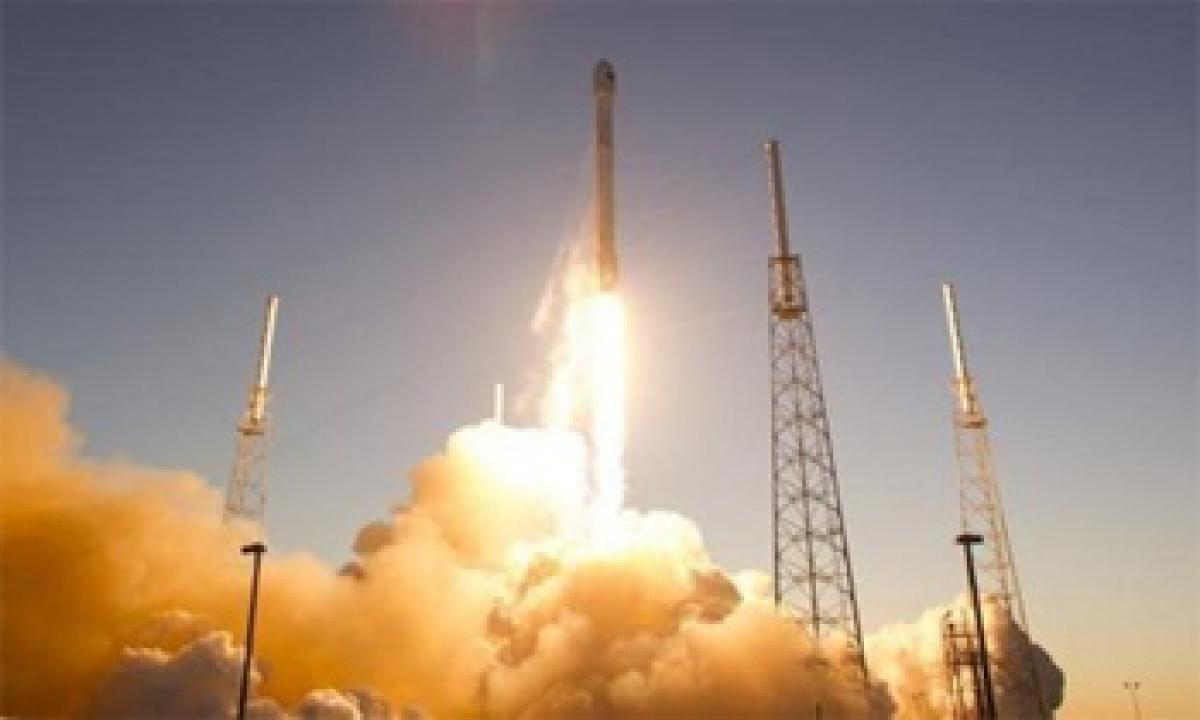Live
- Skill enhancement session organised for school teachers
- Tribal Ashram school girl students fall sick again
- Grand finale of Innovation marathon begins at IIT Tirupati
- Ensure no inconvenience to bus passengers: MLA
- Being overweight surpasses smoking as Australia's leading health risk
- Rush of Devotees at Tirumala normal, to take six hours for darshans
- Thiruvannamalai turns a major revenue earner for RTC
- Development works in Warangal to take off on war-footing: Ponguleti
- Great day for America: Trump welcomes FBI chief's resignation announcement
- SAAP chief for bringing hi-tech into sports
Just In

x
Highlights
The year 2015 could be termed as one of commercial launches for the Indian Space Research Organisation (ISRO), while steps have been taken to spread the usage of space technology within India.
The year 2015 could be termed as one of commercial launches for the Indian Space Research Organisation (ISRO), while steps have been taken to spread the usage of space technology within India.
During the year, the Indian space agency launched 17 foreign satellites as against three Indian ones from its rocket port in Sriharikota in Andhra Pradesh.
Last month, India also launched its GSAT-15 communication satellite using the Ariane rocket of the European space agency, taking the total number of satellite launches in 2015 to 21 (17 foreign, four Indian).
India will send aloft two telecommunication satellites - GSAT-17 and GSAT-18 - on the Ariane 5 rocket in 2016 and 2017.
However, it terms of the foreign tonnage, ISRO had transported around 2,148 kg, which is much below the GSAT-15's three tonne weight.
According to space agency officials, India has contracted to launch over 20 satellites - a mix of nano, micro and normal sized ones -over the next three years.
According to ISRO chairman A.S. Kiran Kumar, the immediate focus is on completing the second vehicle (rocket) assembly line that would enable increasing the launch frequency.
In terms of rockets used, 19 satellites were launched with the polar satellite launch vehicle (PSLV) and one communication satellite - the GSAT-6 - with a geosynchronous satellite launch vehicle (GSLV).
During the year, India joined a select group of nations - the US, Japan and Russia, as also Europe - with the successful launch of the Astrostat space observatory. India also moved a step forward towards its own satellite navigation systems by launching the IRNSS-1D in March.
On July 13, India launched its satellite-based air navigation services GAGAN (GPS Aided Geo Augmented Navigation Satellite System) and in the process joined a select group of the US and Japan, as also the European Union (EU) that have a similar system.
GAGAN is meant to provide accurate navigation services over the Bay of Bengal, southeast Asia, the Indian Ocean, Middle East and African region.
In another plus, the space agency successfully tested the restarting of the PSLV rocket after its engine was cut off during the mission to launch six Singaporean satellites on December 16. This would enable ISRO to launch multiple satellites in different orbits with a single rocket.
And, to increase the usage of Indian space technology a meeting of central government ministries were held in New Delhi during the year where ISRO showcased its products and services and their uses.
Besides, with the launch of the GAGAN and IRNSS (Indian Regional Navigation Satellite System) projects, ISRO and the Airports Authority of India organised a user-meet in Bengaluru for these services.
The year 2015 also saw the Netherlands-based International Criminal Court (ICC) tribunal deciding against ISRO's commercial arm Antrix Corporation for cancelling a $300 million (Rs.2,000 crore) deal with Bengaluru based Devas Multimedia Ltd. This ivnolved a 12-year lease of 90 percent of transponder space on two satellites, G-SAT6 and G-SAT6A that were yet to go aloft at the time.
The ICC awarded $672 million (Rs.4,434 crore) in damages to Devas Multimedia and ISRO said it would contest the award.
Highlights:
* India's Mars Orbiter completed 100 days of its Martian orbit on the New Year's Day 2015.
* Distinguished scientist A.S. Kiran Kumar was appointed secretary, department of space and ISRO chairman.
* The year ending was the 40th year after the launch India's first satellite, Aryabhata, with a Russian rocket.
* Till date, 50 rockets - not including sounding rockets - have been launched from Sriharikota.
* Indian Railways initiated discussions with ISRO on the possibility of using GPS-Aided Geo-Augmented Navigation (GAGAN) for safety at unmanned railway crossings.

Next Story
More Stories
ADVERTISEMENT
© 2024 Hyderabad Media House Limited/The Hans India. All rights reserved. Powered by hocalwire.com







